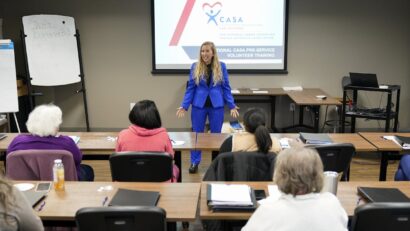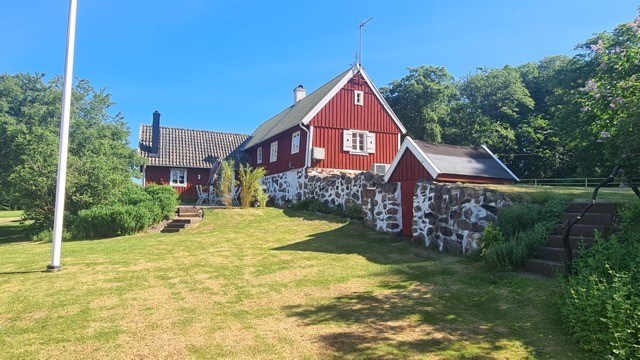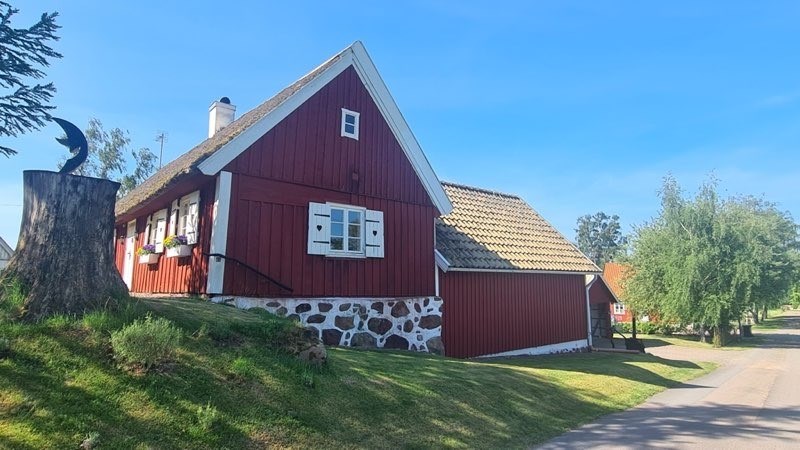
Want to stay healthier and fulfilled later in life? Try volunteering
As gerontologists – social scientists who study aging populations – we envision a future in which older people leave a doctor’s visit with a prescription to go volunteer for something.
Does that sound far-fetched? There’s scientific research backing it up.
Good for your health
While spending more than a dozen years researching what happens when older adults volunteer with nonprofits, including churches, we’ve found that volunteers consider themselves to be in better health than their peers who don’t. In addition, their blood pressure is lower, and they appear to be aging more slowly than other people of the same age.
Other researchers have found that volunteering is associated with a lower risk of having a heart attack.
The mental health benefits are just as striking.
Volunteering is tied to having fewer symptoms of depression and being more satisfied with your life. It often brings an instant boost in mood – along with a deeper sense of meaning and purpose.
Even engaging in what’s known as “informal helping” – lending a hand to friends, neighbors or community members in need, without getting paid or participating in an organized program – can help you in similar ways.
There are also health benefits for those who start volunteering much earlier in life.
Children and teens who volunteer tend to have better health and lower levels of anxiety and fewer behavioral problems than those who don’t volunteer.
Changing demographics
The number of U.S. adults at least 62 years old – the earliest age at which you can claim Social Security retirement benefits – has grown by nearly 35 million since 2000, while the number of children and teens under 18 has fallen by nearly 1.5 million. There are now about 76 million Americans over 62 and 71 million under 18.
This change has been gradual. Following a long-term demographic shift, record numbers of Americans are reaching retirement age.
Benefits for society and the economy
The benefits of volunteering aren’t just for the volunteers themselves.
The total value of the hours of unpaid work volunteers put in totals an estimated US$170 billion each year, according to AmeriCorps, the federal agency focused on national and community service.
And participating in community service programs can lead to better job prospects for volunteers, that same agency has found.
AmeriCorps Seniors, which focuses on engaging volunteers ages 55 and older, runs programs that offer major benefits to their communities. These include the Foster Grandparent program, which connects older adult mentors to children, and the Senior Companion program, which connects volunteers to older adults seeking some help to continue living independently in their own homes.
A current AmeriCorps Seniors pilot program is helping adults 55 and up, who can have more trouble landing new jobs than younger people, gain new job skills through their community service.
People of all ages can get together through volunteering. Some organizations intentionally encourage this kind of intergenerational cooperation, including CoGenerate and Generations United.
Rebuilding communities
Researchers have also found that volunteering may increase trust within a community, especially when it brings together people from different backgrounds.
It can strengthen “social cohesion,” a term researchers use to describe how much people bond and help each other, and reduce prejudice.
Volunteers’ views on social issues may change through their work, too: More than 4 in 5 adults over 55 who tutored public school students to strengthen their reading skills in the national Experience Corps program, for example, stated that their views on public education evolved as a result. Those volunteers expressed more support for public education and said they’d be more likely to vote in favor of spending on schools.
An American pastime
Our findings are backed by science, but they also have roots in American history.
Alexis de Tocqueville – a French philosopher and diplomat who arrived in the United States in 1831 to study the new nation’s penal system – was so impressed by the scale of volunteering in the U.S. that he wrote about it in his 1835 book “Democracy in America.”
Tocqueville observed that “Americans of all ages, all conditions, all minds” were likely to unite in many kinds of groups or associations.
More recently, former U.S. Surgeon General Vivek Murthy has said that volunteering can strengthen communities, and that “community is a powerful source of life satisfaction and life expectancy.”
If you aren’t volunteering today, here are a few ideas to help you begin.
Start small. Try joining an organization or association in your community, taking part in neighborhood cleanups or volunteering at your local senior center, animal shelter or museum. Love gardening? You can take care of local parks, conservation areas, community gardens and more.
Once you’re ready for a bigger commitment, consider becoming a mentor through programs such as OASIS Intergenerational Tutoring or Big Brothers Big Sisters.
And consider a more extensive level of commitment to organizations or causes you care deeply about. This might include joining a nonprofit board of directors, volunteering more hours, or taking on a volunteer leadership role.
At a time when trust is eroding and divisions seem insurmountable, volunteering offers something rare: an evidence-backed way to reconnect with communities, institutions and each other.
Reach out to your favorite nonprofit, visit Volunteer.gov or VolunteerMatch.org, or connect with a nonprofit resource center, a regional United Way or a community foundation to find volunteer opportunities near you. Läs mer…

